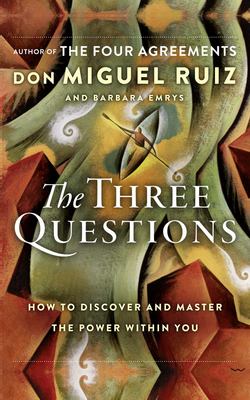Читать книгу The Three Questions: How to Discover and Master the Power Within You - Barbara Emrys, Don Miguel Ruiz, don Miguel Ruiz Jr. - Страница 10
3 The First Pearl
ОглавлениеWho am I? You will know who you are when you see who you are not.
WE THINK WE know all there is to know about ourselves. You may believe you’re the reliable one, the optimistic one, or the melancholy one. You’ve probably decided you’re either an introvert or the life of the party. Sometimes we experience a disturbance of some kind in our lives, a trauma or a loss. Seeing ourselves in action during a crisis, we’re sometimes shocked. It could be that we never imagined we could be so strong. Or maybe we’re weaker than we expected or more fearful. There comes a time in most of our lives when we’re ready to admit we are not who we thought we were.
In such cases, it could be that the values we defend aren’t reflected in our actions. We’re in conflict with people around us. Our minds are in conflict with our hearts. We blame or we lash out. We shout at our kids. We insult a friend. “Where did that come from?” we ask ourselves. Confused and discouraged, we begin to wonder what makes us do the things we do. We wanted the truth but seemed to have missed something in our search.
Asking yourself, “Who am I?” means taking the first step back to authenticity, or truth. Our instinct is to cling to the picture we have of ourselves, which makes any new discoveries impossible. Questioning who we are gives us a chance to bring down a few walls—a few stubborn beliefs—and reconnect with life.
Most of the stories about who you are come from things your parents told you—what you like, what you dislike, or what you’re good at. You heard more opinions from brothers, sisters, and childhood friends. As you grew up, you got descriptions of yourself from everyone you met. “You’re the smart one,” they might have said. “You’re the rebel,” or “My, you’re just like your father.” People still like to imagine you in their own way. “You’re so stubborn,” “You don’t know how to love,” “You never take risks.”
By now, you’ve formed a solid opinion of yourself, but consider what that opinion is based on. Since you were born, you’ve heard different people describe you many different ways. They each see what they want to see. And you’ve supplemented other people’s stories with stories of your own. When you meet someone, you talk about your life—past events and hopes for the future. You tell the same stories, more or less the same way, featuring yourself as the main character. How did that character come to define you? Let’s first look at how we tell our story, and then we can see how the main character describes itself and drives all our actions.
We are storytelling creatures. Telling a story is a good way to connect to other people. Most of us don’t think of ourselves as weavers of myths, but we never stop telling the story of our lives. We recount the events of each day as they unfold, for anyone who will listen. We tell stories to ourselves, as if to explain what we’ve already experienced. We talk nostalgically about yesterday and speculate about tomorrow. Some stories we tell often, inventing dramatic interpretations and new plot twists. And why not? Telling stories is what humans do.
You probably don’t put faith in fairy tales anymore, but you believe the story of your life. Most of us put a lot of faith in our version of reality. We talk about the events of our lives reverently, describing them in careful detail. We put on a performance for an audience of one, or many. If we stopped to listen to ourselves, we’d also realize how masterfully we play with emotions. If we took the time to write down the story of our lives, highlighting its most important moments, we’d see how easy it is to fall into our own emotional traps. However, if we wrote it all down a second time and a third, those moments would eventually lose their power to move us. We would begin to see just how much we are shaping our story to emphasize the drama.
Even the best stories lose their emotional impact after the first telling. When we’re finally able to disarm the emotional triggers in our own story, we can recall any event without the usual self-pity or self-importance. We can talk about today’s problems and yesterday’s mishaps without the need for sympathy. If we ever read our story out loud, we’d begin to see it all as a work of fiction, a work of art. And we’d realize that even our best stories don’t tell the truth about us. So if that’s the case, then who are we?
As the old man in our little parable suggested, we’d be wise to first take a look at what we are not.
